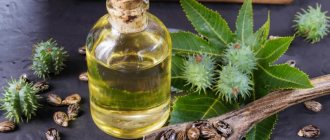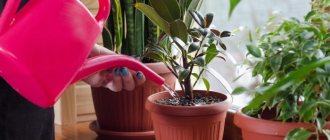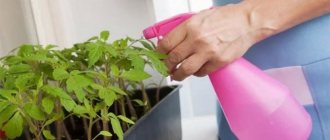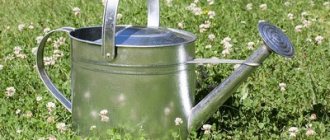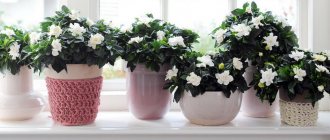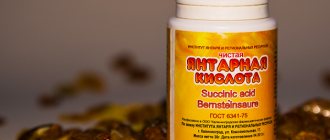Those who like to furnish their homes with indoor plants always try to water them on time, feed them, and create suitable temperature conditions. You can fertilize plants in various ways, including beer, because this is a natural remedy containing many nutrients, due to which the effect of fertilizing will be noticeable within a couple of weeks.
Will be fertilized
Indoor flowers need feeding no less than garden flowers, because, despite the home conditions, they also often suffer and get sick. A cramped pot, too much sun and drying out soil or, conversely, a lack of ultraviolet rays and waterlogging due to the north side of the house - all this can be the reason that indoor flowers grow poorly or even die.
Feeding with beer will help your plants transform, because it contains yeast. When they get into the soil, they begin to interact with various microorganisms, stimulating the natural formation of nitrogen and potassium - elements without which the plant turns yellow and dies.
The main thing is to water the plants with “live” beer, and not one that can be stored for a year due to the abundance of preservatives and other additives. Regular store-bought beer will most likely kill the flowers.
Product selection
Before feeding with beer, you need to know what exactly this drink should be. The required result can only be obtained if the beer is alive. It differs in that it has a limited storage time.
It is very important that beer does not contain preservatives, stabilizers, or other chemical components. It is not hops and malt that influence plant growth, but potassium, since it is this microelement that promotes better flowering.
Experienced gardeners say that such fertilizing helps increase the plant’s immunity and also reduces the likelihood of pest infection. However, you need to remember that different plants react completely differently to such fertilizer.
Will receive additional food
In addition to yeast, beer contains malt and hops, which serve as additional nutrition for plants. Hops contain flavonoids, tannins, gum, hop resins, carotene, resin acids, phenols, bitter substances, essential oils, which are very beneficial for plants.
Malt is even more valuable, since it contains vitamins A, E, B1, B2, B5, as well as phosphorus, calcium, magnesium, selenium, manganese and sugars of natural origin, which are a source of glucose for indoor plants.
What foamy drink can be used for watering?
Beer with a long shelf life should not be used for watering. It contains a large number of chemicals, preservatives, stabilizers that can harm plants.
It is especially dangerous to use fortified beer with a high alcohol content. It can cause plant death due to the greater amount of alcohol in the composition.
It is worth choosing light live beer. It contains a minimal amount of concentrates, chemicals, and synthetic additives. It is best to purchase beer on tap with a short shelf life.
Ideal beer composition:
- hop;
- malt;
- water;
- and yeast.
In real life, it will be quite difficult to find a drink with exactly this composition.
Attention. Instead of beer, you can use brewer's yeast. They are natural organic raw materials without preservatives.
They will grow better
A solution made from beer is considered an excellent growth biostimulator. The beer solution can be prepared as follows:
- Let 1 liter of water sit for a day at room temperature.
- Mix a solution of 1 liter of settled water and 100 ml of “live” beer.
- Allow the solution to combine well for 15-20 minutes and you can start watering.
In order to speed up growth, you need to pour about 100 ml of solution under the root of one plant once a week. With this fertilizer, flowers will develop well even with a lack of sunlight. You just need to remember that it is permissible to water the plants with non-alcoholic beer, left open for 10-12 hours.
LiveInternetLiveInternet
—Categories
- = K U L I N A R I Y = (2442)
- Pancakes and pancakes (53)
- Dishes “KOREAN style” (76)
- Fruit and Berry Dishes (62)
- Baked pork, brisket, ham, pastrami, etc. (61)
- Sandwiches, canapés (46)
- Quick and Tasty LUNCH or DINNER (203)
- Quick and Delicious BREAKFAST (127)
- Dumplings, dumplings, khinkali, manti, etc. (52)
- Side dish (35)
- Stuffed cabbage rolls (14)
- Cooking in a sleeve, foil, etc. (73)
- Cooking in MICROWAVE (45)
- Cooking in a MULTICOOKER (30)
- We prepare for a HOLIDAY, FUCKET, etc. (175)
- Cooking OFF-PRODUCTS (tongue, liver, heart, etc.) (38)
- Cooking with MUSHROOMS (61)
- Dessert: sweets, ice cream, yoghurts, etc. (114)
- For a PICNIC (111)
- in KAZAN at KOSTRA (5)
- Food in pots (34)
- Deep-fry: pasties, belyashi, pies, etc. (79)
- Snack cakes and rolls (21)
- Blanks for future use (SEMI-FINISHED PRODUCTS) (23)
- Goldfish (99)
- Salt the fish (67)
- Casserole (23)
- Greens (9)
- From cheese. (24)
- From stale bread (17)
- From Eggs: dishes, omelettes, brizoli, etc. (37)
- We smoke products (27)
- Cereals. Porridge (16)
- Red grouse hen (177)
- in LAVASH (60)
- Menu for the week (9)
- Seafood (12)
- Meat and minced meat (256)
- Drinks (67)
- Vegetables (137)
- Recipe from Stalik Khankishiev (17)
- SNACK rolls (58)
- Salads and snacks (342)
- Salo (39)
- YOUR OWN meatloaves, sausages, sausages, etc. (29)
- DIY (butter, cheese, etc.) (66)
- TIPS for cooking (98)
- Sauces, Marinades, Dressings, Gravy (50)
- Spaghetti, Pasta, Noodles (7)
- Soups, lagman, beshbarmak, etc. (37)
- We create from cottage cheese (109)
- Decorating dishes, carving (64)
- STUFFED vegetables, vegetable pancakes, pies, zrazy (65)
- Jellied meat, Jellied (7)
- Food storage (35)
- = BAKERY = (360)
- DOUGH (114)
- Puff pastry (44)
- The Beauty of BAKING (18)
- Bread, Flatbread, Donuts (16)
- Pies (75)
- Pies (66)
- Pizza (34)
- Samsa (5)
- And something else. (86)
- Baking TIPS (35)
- = S L A D E N K O E = (1983)
- DOUGH (89)
- The Beauty of BAKING (64)
- TIPS and IDEAS for baking (129)
- Puff pastry (71)
- From SHORT Dough (38)
- CREAM for decorating baked goods (37)
- glaze and fondant (25)
- MASTIC: cooking secrets (10)
- CAKES, sweet PIES (473)
- Cake on a FRYING PAN (33)
- Charlottes / Pies with fruits and berries (169)
- Cheesecakes, Flans, Tarts (69)
- Puff pastries, Croissants, Rolls, Buns (171)
- Cupcakes, Easter cakes, muffins, cupcakes (125)
- Manniks, Cottage cheese, Sour cream (42)
- Cakes, Gingerbread, Eclairs (113)
- Cookies, Gingerbread, Meringue, Shortcakes (232)
- Nuts, Donuts, Donuts, Bagels (53)
- Rolls (83)
- Sochni (6)
- Cheesecakes (12)
- Brushwood, baursaks, chak-chak (15)
- NO BAKE (268)
- Dessert (candies, bars, etc.) (123)
- Waffles (3)
- Collection of recipes (30)
- Confectionery equipment (10)
- = Z A G O T O V K I for Z I M U = (253)
- Important! (17)
- Freeze (26)
- Adjika, ketchup, sauces (20)
- Cucumbers, tomatoes, cabbage (58)
- Zucchini, eggplant, peppers, etc. (thirty)
- From fruits and berries (89)
- Salad for the winter (5)
- Greens (3)
- Mushrooms for the winter (24)
- = K U X N I = (210)
- TABLEWARE (use and care) (54)
- Putting the KITCHEN IN ORDER (64)
- OWN: liquid soap, sprays, etc. (22)
- Fridge. Microwave oven (care, unusual uses) (15)
- Kitchen FURNITURE (34)
- Useful in the KITCHEN (41)
- = U Y T in D O M E = (982)
- Bathhouse (23)
- We knit (socks, mittens and something else. ) (25)
- Hassle-free ironing (18)
- Decoupage and decor (298)
- We make furniture beautiful (covers, capes, etc.) (16)
- For the soul: decorating the house (and garden) with crafts (92)
- Let's tie a scarf and tie (26)
- Interior (108)
- Rugs (16)
- Something about FOOTWEAR (31)
- Beauty for walls (wallpaper, stencils, etc.) (50)
- OWN sprays, liquid soap, bleaches, etc. (39)
- Serving and etiquette (8)
- Cleaning WITHOUT chemicals (66)
- Smart cleaning (79)
- Chemical cleaning at home (90)
- Clean washing in a clean washing machine (104)
- = USEFUL - BAD TIPS = (163)
- Home Economics (77)
- Under the LAW (Family Matters) (48)
- Miscellaneous (42)
- Useful on the go (3)
- = CUT and SEW = (612)
- Building a PATTERN (34)
- TIPS for seamstresses (87)
- Blouses, tunics, cardigans, etc. (88)
- Dresses, robes, etc. (72)
- Pants, skirts (50)
- Lingerie and Swimwear (22)
- And something else. (6)
- Minor clothing repairs (19)
- Repurpose old things (75)
- Bed linen (25)
- Curtains (tailoring, collections) (112)
- Bags and wallets (41)
- Tips for CHUBBE CHILDREN (99)
- From fabric scraps (27)
- = HOMEHOUSE = (1509)
- Gardener's CALENDAR (56)
- SEEDLING: soil mixtures, sowing and care (168)
- Review and characteristics of vegetable seeds and fruits (67)
- Fertilizers, Fertilizers, Growth stimulants (249)
- Tools, garden accessories (49)
- Greenhouses, greenhouses, beds (136)
- Watering (69)
- Useful tips for the garden (42)
- Tips from Igor Lyadov (6)
- Weeds, Pests, Plant Diseases (194)
- Tomatoes (339)
- Cucumbers (210)
- Onion and Garlic (140)
- Berry (131)
- Berry bushes (92)
- Orchard (91)
- Greens (10)
- Legumes and Other Vegetables (11)
- Bakhcha (38)
- Cabbage (25)
- Potatoes and Root Vegetables (73)
- Compost (17)
- Lawn (4)
- Mushrooms (5)
- Vegetable harvesting (1)
- Storing vegetables and fruits (22)
- = COLORS = (766)
- Sowing flowers for seedlings. Soil mixtures (100)
- Annuals (44)
- Biennial garden flowers (12)
- Perennials (sowing, care, propagation, advice) (77)
- Bulbous perennials (51)
- Lilies (22)
- Peonies (24)
- Phlox (10)
- Roses (118)
- Lianas (Clemates, Kobeya, etc.) (42)
- Ampelous flowers (105)
- Petunias (120)
- Eustoma (8)
- Fuchsia (23)
- Pelargonium (Geranium) (25)
- Shrubs in the garden (4)
- General tips for flower growers (55)
- Watering and fertilizing flowers (84)
- Flowerpots, pots. (36)
- Flower beds, flower beds, rock gardens (64)
- = M A S T E R A M = (482)
- We do it ourselves for home and garden (182)
- We make furniture (89)
- Remodeling and decorating old furniture (35)
- We will build a grill, barbecue, barbecue ourselves (36)
- About tiles and concrete blocks (23)
- We'll do the repairs ourselves (80)
- We repair equipment (7)
- Plumber (9)
- COLLECTION OF TIPS (20)
- Builder (54)
- Electrician (13)
- Fisherman (3)
- = HEALTH = (652)
- Sore feet . (47)
- Instead of tablets (healing properties of honey and plants) (97)
- Headache, Stroke, Heart Attack (3)
- Stomach and. etc. (12)
- Getting rid of BAD habits (32)
- Beauty is a terrible force (107)
- Did you call an ENT specialist?! (Ear, nose, throat) (34)
- We increase IMMUNITY (and cleanse the body a little). (48)
- Spine, neck and joints (126)
- Liver, Kidneys, Urinary. (26)
- Cold ? Yes . but it's NOT a TROUBLE! (56)
- DOCTOR'S advice (9)
- MISCELLANEOUS (People's Councils) (142)
- Tablets and ointments (57)
- = TIPS FOR PARENTS = (158)
- General Tips (90)
- For Schoolboy (72)
- = D E T Y M = (145)
- Games (85)
- Cartoons and films (64)
- = I N T E R E S N O = (1280)
- Rus, Russia, Russian language (11)
- Online (cinema and more) (140)
- WOW (WoW). (9)
- Age-old wisdom (25)
- Vesyolenkoe (349)
- Date of birth, names, horoscopes (70)
- For SMS and congratulations (48)
- BEAUTY (267)
- Music, songs (97)
- A little bit about everything (127)
- SUPER - dancing (60)
- Believe it or not, believe it or not. (86)
- = For D N E V N I K A = (111)
- "with Codes" (4)
- Anime and Decorations (7)
- Tips (24)
- Schemes (72)
- = ELECTRONIC LIBRARY = (7)
Leaf gloss
The smooth leaves of indoor plants quickly become dirty and dull. If you wipe the leaves with beer diluted 1 to 1 with water, they will shine, and less dust will begin to settle on them. The beer should be a little old, not fresh.
Leaves covered with fluff cannot be wiped, as the villi will be damaged and the plant may die.
Although beer has a beneficial effect on indoor plants, you should not overuse such watering. An excess of this fertilizer will provoke the growth of mold, mildew and an unpleasant odor.
How to use beer
Feeding plants helps them become much stronger. Summer residents use mineral water, tea, and coffee for this. However, one of the strangest recipes can be considered watering plants with beer. It can be used in several different ways, in particular:
- feeding with brewer's yeast;
- rubbing leaves with beer;
- pouring diluted beer.
Brewer's yeast began to be used as a fertilizer for agricultural crops in the last century. Recently, this method has increasingly begun to be used for feeding indoor plants.
To do this, you need to dilute 10 g of yeast in 10 liters of water, add 3-5 tbsp. l. sugar, leave in a fairly warm place for 5-7 hours. Water the plants with the prepared liquid, but you should not use it often, as black moss may appear on the soil.
A place to discover: scientists have compiled a map of the habitats of animals unknown to science
“Total Dictation” will be available in English for the first time
Octopus ancestors may be 30 million years older, fossils suggest
You can wipe the leaves of plants with beer. To do this, dilute the drink with water. It is worth considering that there are no strict proportions; it all depends on the specific type of plant. You should not wipe leaves with fibers with beer, as they dry out and crumble.
Ficus benjamina
My favorite is Ficus benjamina. It can sometimes present very unpleasant “gifts” in the form of dropping leaves.
According to a friend, she also encountered a similar phenomenon, but the same solution helped restore the tree, but more concentrated: dilute a tablespoon of strong alcohol in a glass of water. With this watering, the ficus will stop shedding its leaves and will begin to grow faster, delighting with a gorgeous crown.
Water plants with water after cooking food and using nails
If you boiled eggs, potatoes, pasta, vegetables, etc., do not pour them down the drain. They contain valuable nutrients that are extracted from them during the cooking process. If they are not salted, they can be used to water plants perfectly. Make sure again that the water is not salty. Salt water is like water containing vegetable oil, and the latter will attract pests.
Flowers and berries that love iron, such as rhododendrons, camellias, blueberries or cranberries, will smell fragrant if you water them with water that has rusty nails in it (remove the nails before watering).
Zircon - instructions for use
Zircon is a universal growth stimulator. It has a complex effect, improving several indicators at once:
- root formation;
- height;
- bloom.
Plants treated with the drug adapt better to new conditions and more actively resist the development of diseases. To obtain a working solution, the drug is diluted according to the instructions attached to it. The remaining composition after processing can be stored for no more than a day.
Zircon is successfully combined with any product used to treat or feed a plant. It is also used to increase yield in fruit-bearing crops.
Reference! To increase the shelf life of the working solution, it is necessary to acidify the water in advance.
Boosting immunity
Brewer's yeast perfectly helps in strengthening the root system, which strengthens the immune system. In this regard, plants are protected from diseases and resistance to major parasites is created.
Beer feeding works best on indoor plants such as house roses and money trees, as well as dracaenas, spurge and ficus
Fertilize flowers with beer
In the kitchen
5. If you have fruit flies, a glass of beer will help. Cover the container with cling film, leaving a small opening for flies to enter. They won't be able to get out.
6. The acid present in beer makes it a good cleaning agent, especially for brass and copper cookware. You can also pamper your gold jewelry by putting it in beer. Wait for it to absorb, then rinse with water and dry your rings, bracelets and chains with a soft cloth.
7. Beer makes an excellent trap for cockroaches. Soak a piece of bread in the drink and place it in the bottom of a glass jar. Lubricate the neck of the vessel with Vaseline. Kitchen monsters will get inside, but will not be able to get out of the jar.
Paralympian Talai without arms and legs: “the more difficult the struggle, the greater the victory” A broken nail is not a problem: tips on treating nails at home Only in a soft spot: Russian Domostroy forbade punishing children in any other way
8. A foamy drink is an excellent addition to marinades, barbecue sauces, and fluffy dough. You can also add it to water when steaming clams, cooking shrimp or even rice. Well, how can you not remember the classic recipe - chicken on a can of beer?
Basic rules for fertilizing flowers
When taking care of indoor flowers, you should strictly follow the rules for adding nutrients so that good intentions do not lead to a deterioration in the condition of the plant. Each feeding should be perceived not as stimulation of growth and flowering, but as the introduction of vital elements. In this case, it is possible to achieve the correct development and formation of the decorative qualities of the flower.
To grow beautiful and healthy plants, you should follow the basic rules:
- take into account individual characteristics and recommendations for each instance;
- follow the fertilizer manufacturer's instructions;
- follow the feeding schedule;
- choose the right time of day and season for applying fertilizers;
- do not use liquid or dry preparations in concentrated form;
- Apply fertilizer only to moist soil;
- 30 minutes after spraying the foliage with fertilizer, re-treat with clean water;
- do not mix different drugs;
- do not feed recently transplanted flowers;
- do not fertilize diseased specimens.
Sources used:
- https://moiorhidei.ru/sovet/prekrasajte-vylivat-nedopitoe-pivo-kakuu-polzu-ono-mozet-prinesti-dla-komnatnyh-rastenij
- https://ufermer.com/komnatnye-rasteniya/sredstva-udobreniya-dlya-bystrogo-rosta.html
- https://deepcool-ma.com/polivajte-molokom-sliznyak-utonet-v-pive-10-sovetov-dlya-sada-ogoroda-dachi/.html
- https://www.syl.ru/post/home-and-family/795
- https://dachavremya.ru/ogorod/poliv/mozhno-li-polivat-cvety-pivom.html
Life-giving liquid
Plants periodically need liquid nutrition. Therefore, when throwing out a wilted bouquet from a vase or refreshing an aquarium, never throw out the water. After all, it is replete with elements necessary for the healthy growth of garden plants. This rule also applies to the water in which you boiled eggs, vegetables, pasta, and also washed containers containing tea, coffee, beer, juices, etc.
It just so happens that the most effective folk methods of growing seedlings are considered “grandmother’s tricks,” although some enterprising grandfather probably came up with the idea of watering young plants with beer. It’s a joke, of course, but there is some truth in it: it turns out that seedlings of many fruits, vegetables and ornamental crops respond gratefully to the addition of an intoxicating drink.
However, don’t rush to the nearest store for a “treat” for your green charges. In order for the seedlings to be strong and healthy after feeding with “grandfather” fertilizer, you will have to take into account several important points.
